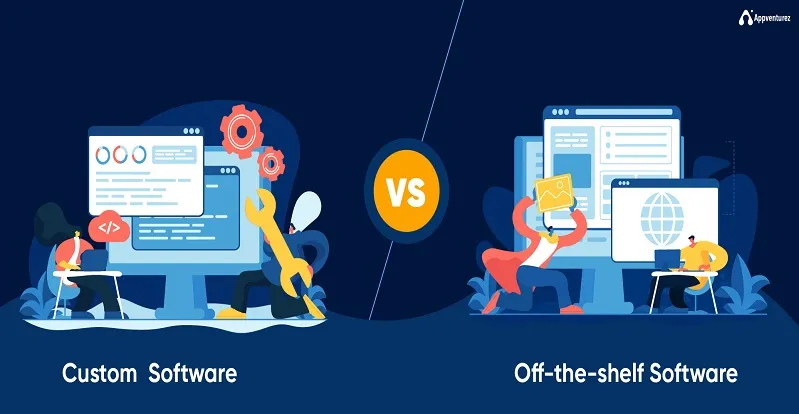
Custom vs. Off-the-Shelf E-Commerce Platforms: Which Is Right for Your Business?
Introduction
Choosing
the right e-commerce platform is a critical decision that can affect everything
from user experience to operational efficiency and scalability. Businesses
often face a choice between custom-built and off-the-shelf e-commerce
platforms. This blog will explore the pros and cons of each option, helping
businesses decide which path best aligns with their goals, resources, and
long-term vision.
What Are Custom and Off-the-Shelf E-Commerce Platforms?
Custom E-Commerce Platforms:
A custom platform is built from the ground up to meet the
unique needs of a business. It allows for full customization and control over
features, design, and scalability.
Off-the-Shelf
E-Commerce Platforms:
These are pre-built solutions, such as Shopify,
Woo Commerce, or Magneto, that offer ready-to-use features and integrations.
They are designed to get businesses online quickly with a range of standard
e-commerce functionalities.
Benefits of Custom E-Commerce Platforms
Full
Customization:
A
custom platform can be tailored to meet specific business requirements and
customer needs, offering complete control over design, functionality, and
integrations.
Enhanced
Scalability:
Custom platforms allow for growth-oriented
scaling, making it easy to add features and adjust to increased traffic without
constraints.
Competitive
Differentiation:
With
a unique platform, businesses can create a distinct customer experience, which
is crucial for brand identity and customer loyalty.
Benefits of Off-the-Shelf E-Commerce Platforms:
Quick
Setup and Lower Upfront Costs:
Off-the-shelf
platforms are generally faster to deploy and require lower initial investment,
making them ideal for small businesses or startups with limited resources.
Pre-Built
Features and Integrations:
These platforms come with essential e-commerce features,
such as shopping carts, payment gateways, and marketing tools, that are easy to
use and require minimal setup.
Regular
Updates and Security:
Off-the-shelf platforms typically handle updates and
security patches, allowing businesses to focus more on operations than on
maintenance.
Drawbacks to Consider:
Custom
Platforms:
Development time and costs are higher, requiring significant
investment in both resources and maintenance. Custom platforms may also need
regular updates to keep up with evolving technologies and security standards.
Off-the-Shelf
Platforms:
Limited customization
options can restrict a business’s ability to deliver a unique experience or
implement specific features, which can impact growth potential and brand
differentiation
Which Is Right for Your Business?
Custom
Platform:
Ideal
for businesses with unique requirements, long-term growth plans, and sufficient
resources to invest in a tailored solution that provides maximum flexibility.
Off-the-Shelf
Platform:
A great option for businesses focused on quick
deployment and cost-efficiency, particularly those with standard e-commerce
needs and a limited budget for development.
Conclusion:
Both custom and off-the-shelf
e-commerce platforms offer valuable benefits, depending on the business’s
needs, budget, and future goals. By understanding the strengths and limitations
of each, businesses can make an informed decision that supports their growth
strategy and aligns with their customer expectations. Choosing the right
platform is about balancing flexibility, control, and scalability for long-term
success.This blog provides a clear, structured comparison to help businesses
evaluate whether a custom or off-the-shelf e-commerce solution best suits their
needs.
Start your online Ecommerce Shop Now!!!
Check
exclusive plans here : https://sysmarche.com
Call
Now : +91 86523 62400 / 88981
41483
